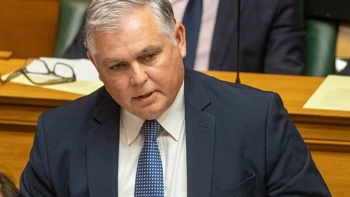
Controversy marked the first hui of a new councillor, Rhonda Tibble, who was elected to the new Māori ward of Gisborne District Council last month. The council’s first hui was held at Te Poho o Rawiri Marae on Thursday where Tibble was challenged when she stood to speak.
Tibble spoke for at least a minute before Barney Tupara of Ngāti Oneone objected to her speaking.
“Honestly, I don’t know what my relative was thinking at that time. However, once it all calms down, he and I can talk about the customs in his area and the customs in my area,” Tibble says.
The public meeting was live-streamed and while the visuals went to black in the middle of the scene, the audio was still rolling.
Tibble challenged the right of women to speak on the marae, saying, “We continue to suffer from historical oppression, and the suppression of our values, which has forced us to be like them. It has now rooted in our lives, to our marae in this day and age of 2022. There are prime examples of European women over the past four years; Jacinda (Ardern), (Dame Patsy) Reddy, (Dame Jenny) Shipley, and also the British commander.”
Wahine speaker in 1934
It was then Tupara challenged Tibble, and replied, “Sit, sit down. The protocol on this marae is for the men to speak. Don’t say any more.”
Speaking to Te Ao Mārama, Tibble explained the protocol of women speaking on marae in the Tai Rāwhiti region.
“The first Māori woman from Te Tai Rāwhiti to speak on the marae came about 70 years ago with Materoa Ngarimu, who stood at Waitangi in 1934. She then stood again in 1943 for the Ngarimu VC ceremony. The first time was at Waitangi, and the second was for the VC. Nowadays, between mine and my kuia’s generation, was Whaia McClutchie. She was renowned for speaking on the marae when she was alive. Dame Te Ataairangi Kaahu, and Henare Tuwhangai of the KĪngitanga, consented to her to stand. These examples happened within and outside of Ngāti Porou. We also remember that when our men left to go to war, our customs were left to our women to uphold. If it weren’t for them, we would have lost our customs long ago.”
Tibble and Tupara have not yet met since the incident but the issue was settled soon after with a karakia and the council resumed its meeting at the marae.
Take your Radio, Podcasts and Music with you









